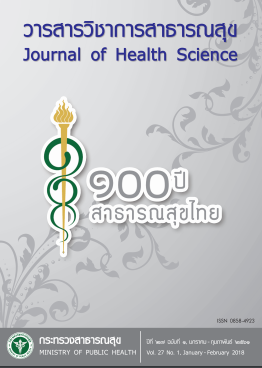Is routine scaling appropriate?
Keywords:
calculus, dental plaque, gingivitis, oral hygiene, scalingAbstract
Routine scaling is commonly provided by oral health services in many countries, including Thai-land. The practice has led to a high amount and high cost of treatment of national health services. Criticism on the effectiveness and appropriateness routine scaling emerged around the year 2000, after the concept of natural history of periodontal diseases had changed. Calculus is not the main determinant of periodon-titis. The presence of calculus is not the predictor of periodontitis in the future. As a consequence, routine scaling as believed to prevent periodontitis is no longer justified. Many studies were conducted to evaluate the effectiveness of routine scaling. Findings indicated that the improvement of gingival health was due to oral hygiene instruction (OHI). Routine scaling without OHI has no benefit for gingival health. Toothbrushing practice that effectively removes dental plaque at cervical areas is more important than professional scaling. This is because gingivitis is caused by dental plaque at cervical areas, while calculus itself is not harmful but facilitate plaque accumulation due to its roughness. Calculus is calcified dental plaque, thus, the presence of calculus indicate the area inadequately cleaned by daily tooth - brushing. There is no need for routine scaling in patients who could improve their tooth-brushing practice. On the other hand, receiving scaling without improving tooth-brushing practice is not effective and a waste of resources. Routine scaling cannot be an appropriate pattern of scaling services. An appropriate scaling service is not merely for calculus removal. Calculus removal and patient's satisfaction after scaling should be used as oral education tools. Patients should be aware of their improperly cleaned areas, indicated by the present calculus, and be able to place their toothbrush right to the areas. Patients should be motivated and empowered to improve and maintain their oral self-care practices. A generally practiced pattern of professionally dependent routine scaling should be changed to a more appropriate pattern that focusing on patient's participation and empowerment. Dental professionals should empower their patients to maintain their good oral hygiene by themselves, not to depend on professional routine services.
Downloads
Downloads
Published
How to Cite
Issue
Section
License
Copyright (c) 2018 Journal of Health Science- วารสารวิชาการสาธารณสุข

This work is licensed under a Creative Commons Attribution-NonCommercial-NoDerivatives 4.0 International License.







